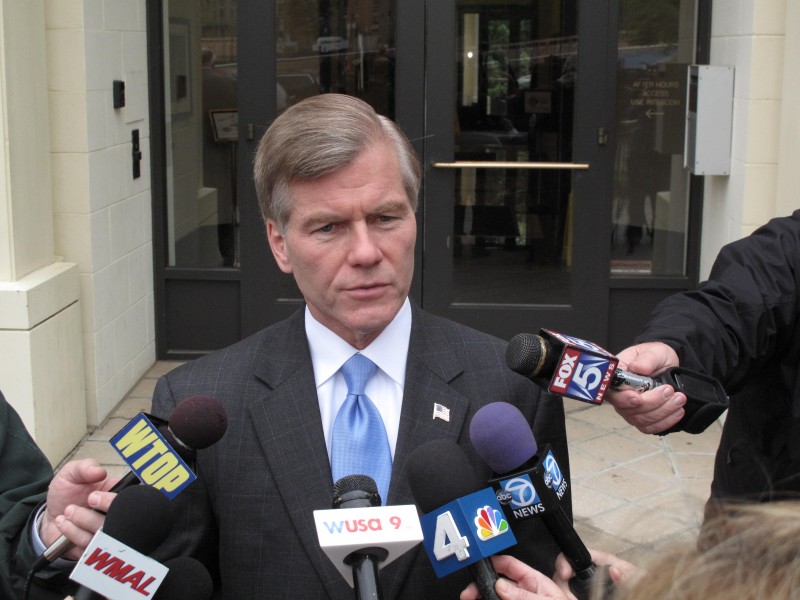Former Virginia Gov. Bob McDonnell tried everything to stay out of prison.
His political career was once so promising that he was tapped to give the Republicans’ rebuttal to President Barack Obama’s 2010 State of the Union speech. And he was considered a serious 2016 presidential contender.
Instead, McDonnell was forced to watch it all crumble before his eyes as he desperately grasped for a way to spare his once-sterling reputation.
In a decidedly undignified fashion, McDonnell and his wife, Maureen, threw each under the bus in court, airing details of their broken marriage as the governor tried to explain that the motivations behind the tens of thousands of dollars in bribes his family took were more about loneliness than corruption.
His attorneys sought to use the scandalous end of his political career as evidence that he’s been punished enough already.
He collected more than 400 letters from friends, former staffers, family members and other politicians — even Democratic Sen. Tim Kaine and former House Majority Leader Eric Cantor — attesting to his character.
He even pled for mercy.
“I stand before you a heartbroken and humbled man,” he told U.S. District Judge James Spencer on Tuesday.
None of it worked. At least not well enough to get what he really wanted: a sentence of only community service. Spencer handed McDonnell two years in prison.
Spencer explained that McDonnell’s crimes were just too grave to allow him to skirt jail time. Eleven felony public corruption convictions are “a serious offense that all the grace and mercy that I can muster, it can’t cover it all,” he said, begrudgingly adding, “No one wants to see a former governor of this great commonwealth in this kind of trouble.”
The case might not be over: Though McDonnell was ordered to report to prison on Feb. 9, his attorneys are appealing his conviction, and will likely try to keep his sentence from starting during that process.
And yet, even those 400 well-placed friends won’t be able to help McDonnell resurrect his political career.
He now joins the long line of high-profile politicians felled by scandal — one that’s been especially long over the last year.
Rep. Trey Radel, R-Florida, resigned in July after being convicted of cocaine possession. Rep. Michael Grimm, R-New York, pled guilty to felony tax evasion and quit early this year.
Others, meanwhile, have tried and failed at comebacks.
Four-term Louisiana Gov. Edwin Edwards, a Democrat, was convicted of extorting $3 million from casinos seeking licenses in his state. After a long prison sentence, he ran for a seat in Congress this fall — taking his race against Republican Garret Graves into a run-off before finally losing.
Buddy Cianci, a conservative who spent 21 years as the mayor of Providence, Rhode Island, over his lifetime, tried for another comeback. He was first forced from office in 1984 after being charged with assaulting a contractor. In 1991, he pulled it off, staying on as mayor until 2002, when he was forced from office yet again, this time due to racketeering.
After five years in prison, Cianci attempted a second comeback this fall, but lost to Democrat Jorge Elorza.
McDonnell will be out of prison before he turns 63. But he will likely go the way of other failed presidential contenders toppled by scandal — many of whom, like John Edwards and Herman Cain, made it much farther into the process than the Virginia governor did, but haven’t been heard from since.
“A price,” Spencer said, “must be paid.”
